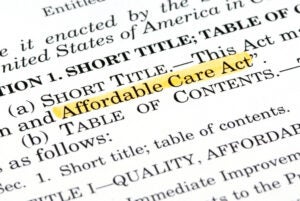Stakeholder Perspectives on CMS’s 2025 Notice of Benefit and Payment Parameters: State Insurance Departments and Marketplaces

In November, the Biden administration released the proposed Notice of Benefits and Payment Parameters for plan year 2025, an annual rule setting standards for the Affordable Care Act (ACA) Marketplaces and health insurers. For CHIR’s third and final blog summarizing stakeholder comments on the proposed rule, Maanasa Kona and Rachel Schwab reviewed letters submitted by state insurance departments and state-based Marketplaces.




